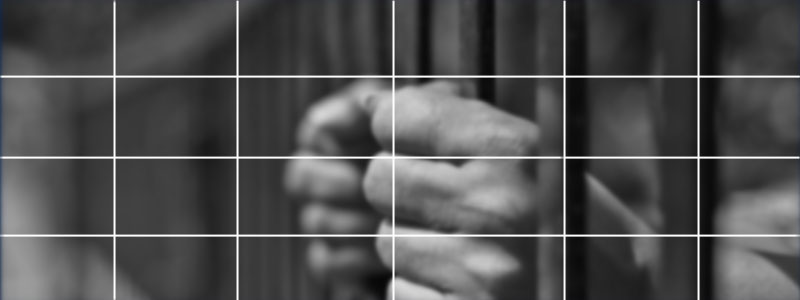

- Criminal Process Overview
- Cyberstalking
- Arson
- Drug Crimes
- White Collar Crimes
- Sex Crimes
- Prostitution
- Stalking Offenses
- Juvenile Offenses
- Violent Crimes
- Conspiracy Charges
- Injunction
- Seal/Expunge Records
- Domestic Violence
- Firearm Charges
- DUI
- Lewd and Lascivious
- Child Abuse
- Assault and Battery
- DWLS
- Violations of Probation
- Weapons Charges
- Resisting An Officer
- Aggravated Assault
- Computer Crime
- Embezzlement
- False Secondary Metals Form
- Felony
- Vacation Arrests
- Trespassing
Overview of the Tampa Criminal Process
Tampa Attorney Representation Since 1978
ARREST: With respect to a felony, a individual may only be arrested based on probable cause to believe that person has committed a crime. A criminal Report Affidavit stating the probable cause for the arrest is presented to the booking personnel.
However, with respect to a misdemeanor (in the absence of a warrant for a person’s arrest), a police officer can only arrest a person if the alleged crime was committed in the officer’s presence.
Booking: After a person is arrested, that individual is searched, fingerprinted and photos are taken by the records section and the person is usually questioned at the county jail detention facility as to identity, background and employment.
Bail: In most cases, the State of Florida as well as the U.S. Constitution provide that citizens have a right to a reasonable bail bond after an arrest. If you have been arrested or you have been advised an arrest is imminent, we can assist you in getting a reasonable bail set in your case.
If bail has already been set, we can file a Motion for Reasonable Bail or a Motion to Reduce Bail to a Reasonable Amount.
Once bail is set the defendant may either post the bail at the Sheriff’s Office , (the funds will be returned at the conclusion of the case if the he or she appeared for the necessary hearings or trial). Many times the services of a bail bonding agency are hired to post the bond for them.
Many times an experienced attorney can arrange for a person to be released on their own recognizance, that is, without the necessity of posting any funds. This type of release is primarily for those individuals with little or no criminal history, strong family ties, good support systems in the community, appropriate employment history, a sound mental status, consideration of the financial strain of a high bond, and, of course, the seriousness of the crime changed.
Call the experienced attorneys at the office of Raymond R. Pines P.A. to assist you in the matter of securing release from incarceration prior to trial.
Prosecution Review: The prosecuting attorney will generally review the charge(s) to determine whether to bring formal charges before the court. While the reviewing prosecuting attorney generally only obtains the testimony of the victim, certain select witnesses or the police, an experienced and knowledgeable defense attorney can present the defendant’s witnesses or perspective to urge the prosecutor not to pursue the charge(s). In many cases, it is crucial that the defense attorney intervene in the process.
Arraignment: If the State Attorney’s office decides to file found charges then the defendant is brought before the court (or noticed to appear if on bail) to enter their plea of not guilty. An experienced defense attorney will require an appropriate amount of time to prepare a defense.
Discovery: The discovery phase of the case allows the prosecution and defense to study the case and all its intricacies, and plan a strategy for court. If discovery is demanded properly, the prosecution must turn over to the defense all evidence in the case. The element of surprise at trial is thus neutralized or severely limited. “Discovery” generally includes the police reports, photos, crime scene information such as DNA, blood samples, comparison sketches and diagrams of a crime scene, witness statements, and audio and video recordings, etc.
Pre-Trial Motions: During or after the discovery phase the defense attorney or prosecutor may choose to file one or several motions that may include, but are not limited to the following:
- Motion to compel additional discovery not yet provided by the prosecution
- Motion to dismiss one or more charges on legal technical grounds
- Motion to dismiss since the facts do not prove a “prima facie case”.
- Motion to dismiss for a speedy trial violation
- Motion to suppress evidence that was either illegally obtained or more prejudicial than probative.
Trial: The trial is commenced with the prosecution and defense present before the court. A jury is then selected by the parties from a pool of prospective jurors and then is informed of the charges.
Each side is entitled to make an opening statement presenting an overview of what they expect the evidence to prove, if they so choose. Note that the defense may wait until after the prosecution presents its evidence to make an opening statement to the jury.
Thereafter each side is given the opportunity to present witnesses and evidence to support their case. A final argument can then be presented by either side.
If a jury has been waived the court will then determine and rule on the guilt or innocence of the defendant.
If a jury has been selected then the Court will advise the jury of the law on the case. The jury will decide the disputed facts at issue and render a verdict of not guilty or guilty.
Contact a Tampa Criminal Lawyer
If you have been convicted of a crime, contact your Tampa Criminal Defense Law Firm at 813-223-5775.

